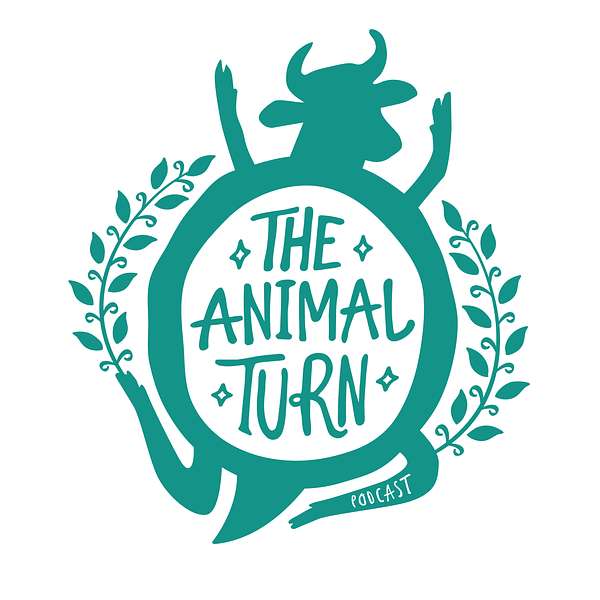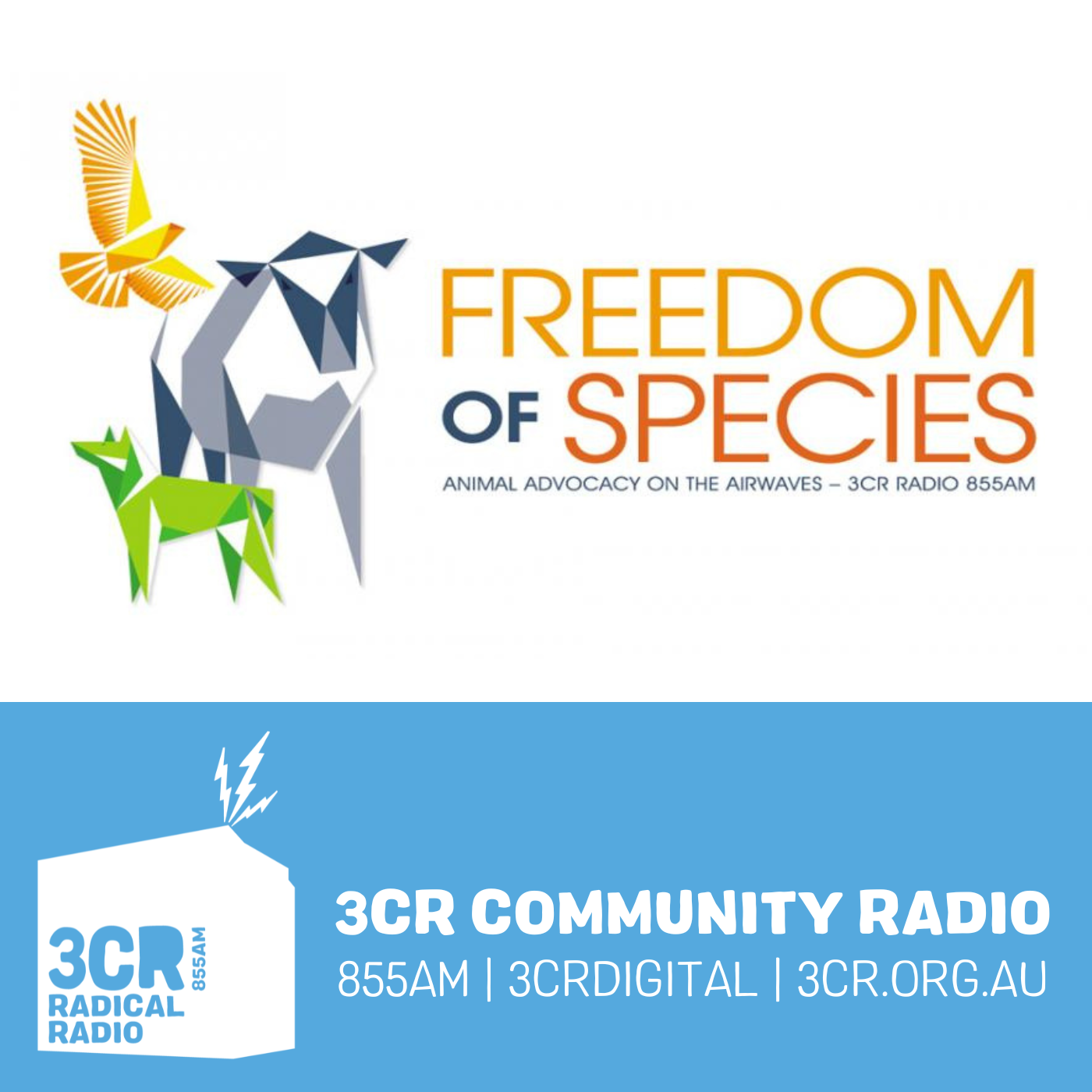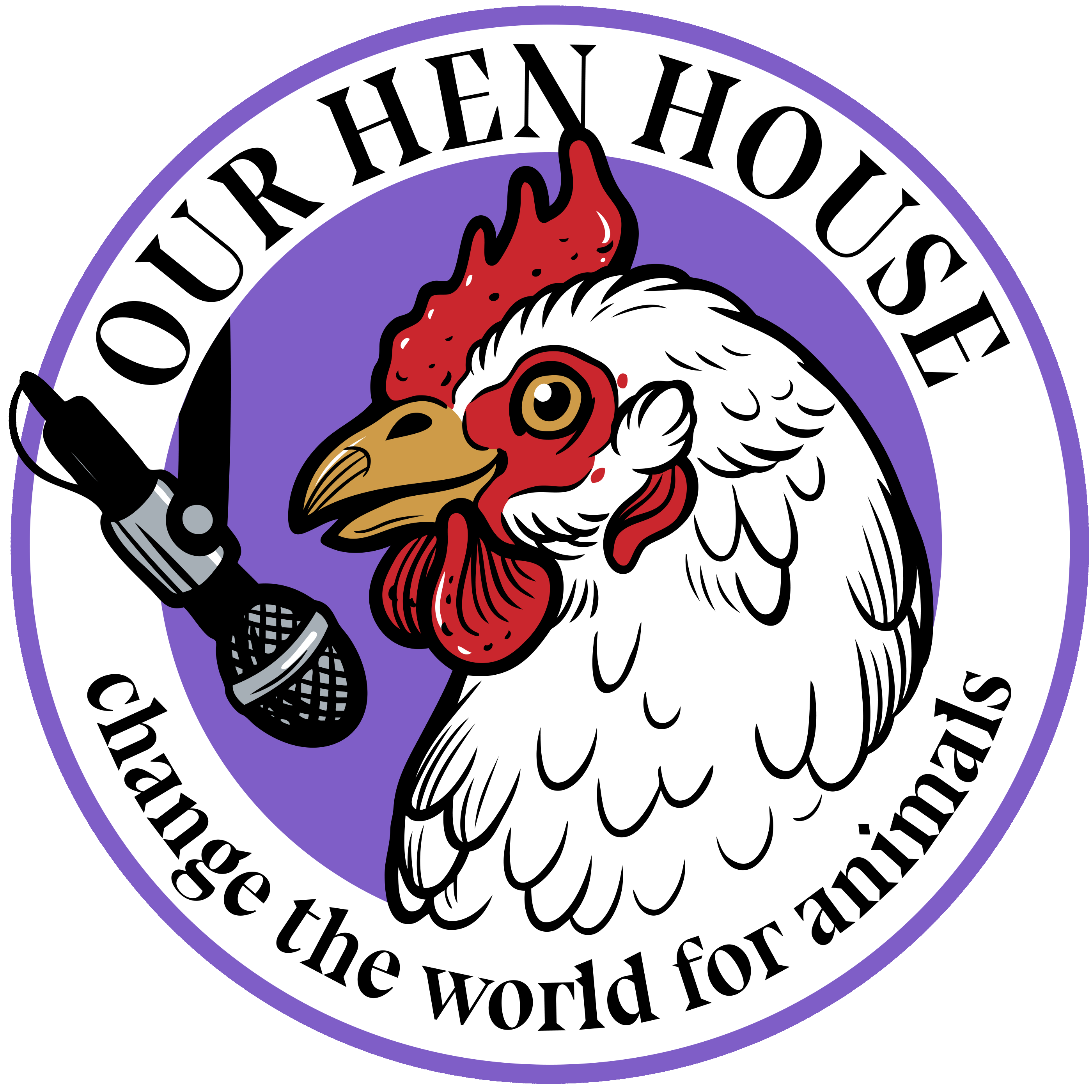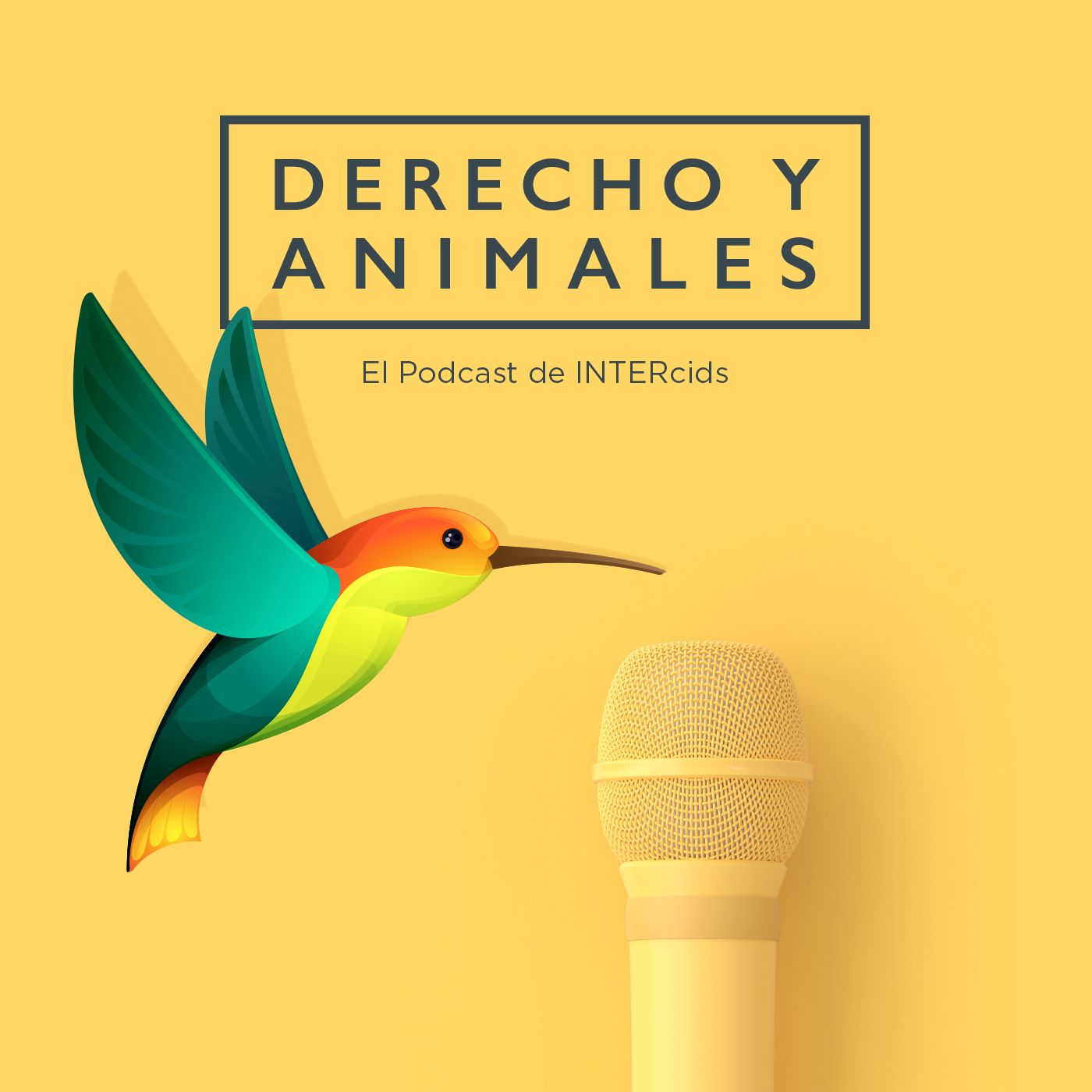
The Animal Turn
Animals are increasingly at the forefront of research questions – Not as shadows to human stories, or as beings we want to understand biologically, or for purely our benefit – but as beings who have histories, stories, and geographies of their own. Each season is set around themes with each episode unpacking a particular animal turn concept and its significance therein. Join Claudia Hirtenfelder as she delves into some of the most important ideas emerging out of this recent turn in scholarship, thinking, and being.
The Animal Turn
Bonus: Animals and Tourism with Carol Kline and Jes Hooper
In this bonus episode Claudia talks to Carol Kline and Jes Hooper about why it is important to think about animals in relation to tourism. They touch on some of the ways animals are included in tourism and how to guard against unwittingly contributing to animal suffering. A key feature of this episode is giving an overview of the Emerging Voices for Animals in Tourism Conference.
Date Recorded: 27 January 2023.
Carol Kline is a Professor and the Director of the Hospitality and Tourism Management program at Appalachian State University. Her teaching and research interests have historically focused broadly on tourism sustainability, including topics such as foodie segmentation, craft beverages, agritourism, tourism entrepreneurship, and tourism in developing economies. However, she now gears her research solely on animals and she teaches a course called Animals, Tourism, & Sustainability. She is part of the Race, Ethnicity, and Social Equity in Tourism (RESET) initiative, which includes animals within the study of social equity. She is founder of Fanimal Inc., a non-profit that helps individuals find animal-focused careers. Connect with Carol on Twitter (@tourismkline).
Jes Hooper is an Anthrozoology PhD candidate at the University of Exeter and a member of Exeter’s Anthrozoology as Symbiotic Ethics (EASE) working group. Her doctoral research focuses on human-civet interactions via the concept of "disappearance" in the Anthropocene. Jes is founder of the Civet Project, a research initiative dedicated to the intrinsic interests of Viverridae (civet) species, and has published several academic works on civet coffee production and authentication, civet coffee tourism, and the rising phenomenon of Civet Lover pet keeping clubs. Jes is also a member of the IUCN SSC Small Carnivore Specialist Group, and works as the Campaigns and Research Manager for
Nature DisturbedMother Nature is one weird lady
Listen on: Apple Podcasts Spotify
A.P.P.L.EAnimals in Politics, Law, and Ethics researches how we live in interspecies societies and polities.
iROAR Network
iROAR brings together podcasts that aim is to make the world a better place for animals.
Disclaimer: This post contains affiliate links. If you make a purchase, I may receive a commission at no extra cost to you.
The Animal Turn is hosted and produced by Claudia Hirtenfelder and is part of the iROAR Network. Learn more on our website.
- Leave a Review on Podchaser
- Check out The Animal Turn Merch.
- Support us on Patreon, Buy Me a Coffee, and Buzzsprout.
00:00 - Introduction
- Significance of animals and tourism
- Important for anyone who engages with animals in tourism and does research in these areas.
- Conference 8-10 March, open for anyone to register. Flexible time frames so anyone can attend.
- Emerging Voices for Animals in Tourism – check out the conference.
- Carol Kline is a Professor and the Director of the Hospitality and Tourism Management program at Appalachian State University. Her teaching and research interests have historically focused broadly on tourism sustainability, including topics such as foodie segmentation, craft beverages, agritourism, tourism entrepreneurship, and tourism in developing economies. However, she now gears her research solely on animals and she teaches a course called Animals, Tourism, & Sustainability. She is part of the Race, Ethnicity, and Social Equity in Tourism (RESET) initiative, which includes animals within the study of social equity. She is founder of Fanimal Inc., a non-profit that helps individuals find animal-focused careers.
- Jes Hooper is an Anthrozoology PhD candidate at the University of Exeter and a member of Exeter’s Anthrozoology as Symbiotic Ethics (EASE) working group. Her doctoral research focuses on human-civet interactions via the concept of "disappearance" in the Anthropocene. Jes is founder of the Civet Project, a research initiative dedicated to the intrinsic interests of Viverridae (civet) species, and has published several academic works on civet coffee production and authentication, civet coffee tourism, and the rising phenomenon of Civet Lover pet keeping clubs. Jes is also a member of the IUCN SSC Small Carnivore Specialist Group, and works as the Campaigns and Research Manager for Badger Trust, a single-species initiative protecting European badgers in England and Wales. Connect with Jes on Twitter (@jes_hooper).
05:09 – Welcome
- Going to talk about the conference and tourism
- Why is it important that we talk about animals and tourism?
- Tourism is one of the biggest industries in the world
- Civet coffee and commodity fetishism in Indonesia
10:19 – Tourism, Photos, and Shared Experiences
- “Tourism is to a great extent about status,” Carol
- Exoticism is also fetishized
- “Do it for the gram,” Jess
- Often think they are supporting local traditional practices or taking photos fabricated ideas of places
- There is a perfomativeness to tourism – “bizarre how much taking the photo is the actual activity,” Claudia
- Photos are damaging because it normalises what are some harmful practices
- Tourism is trading money for an experience and they are not inherently bad.
- The image is the documentation of our experience
- Need to also think about the animal’s experience which has been overlooked.
15:07 – Animals, Consent and Tourism
- We are prone to be doing duped and we get a moral kick from helping animals – but animals’ experiences can be overlooked
- “Consent based tourism,” Animal Experience International’s Nora Livingstone has pioneered this form of tourism – consent of communities, animals, and tourists
- Sanctuaries are prone to being “green washed” and/or “welfare washed”
- Not consenting sends a message to operators
- Findings on Trip Advisor – the civet was sometimes an absent referent (less than 20% mentioned concern for the animals’ welfare)
- Animals are included because tourists ask for them
- Episode with Gladys Kalema- Zikusoka – “community led conservation” and coffee. Coffee is capitalizing off the gorillas but not connecting it with seeing the animals in person.
22:37 – The Politics of Demand
- There are people studying animals in food, captivity, transport and many of these activities are in tourism
- The tourists or the industry increase the demand.
- The industry amplifies small cultural experiences to profit off of tourism
- Increases demand for animal-based experiences, and when production goes up, the importance of animal welfare is compromised
- Difficult for consumers to see but it can be difficult to emphasize with tourists “who are suckered into believing,” Jess
- “Many industries that rely on animals’ build on obfuscation,” Claudia
- Not all tourism is hedonistic.
- There are lots of reason to travel that are not leisure based
29:30 – Culture, Hospitality, and Offence
- There are ethical issues that we need to think about
- “There are certain animal welfare issues that transcend culture,” Carol
- The desire want to be respectful can muddy ethical issues when it comes to animals
- What created the tourism industry in Bali was international fame around civet coffee – a result of pop culture
- Narratives about unique experiences and novel products thrown into fame
34:02 – Do your homework
- Take a moment to be mindful and reviews don’t give the whole picture
- Think about consent
- Do your homework
- Make the time to do your homework
- People engaging in animal welfare will take the time to explain what is going on
- Don’t expect to be close
- Asking whose getting what from this interaction
- Be mindful what is happening when you share images
- Humans clearly have a desire to be near animals
- Also question of consumerism
- Read World Animal Protection, Born Free, PETA
39:36 – Emerging Voices for Animals in Tourism
- Jess and Carol met on Facebook, The Ethics and Animals Facebook Group
- A real thirst for transdisciplinary conversations
- Emerging voices = early career academics, people just entering this field of research, folks outside of academia
- Creating a platform for different people to meet; being as inclusive as possible.
- Conference helped to build community
- Established academics are also at the conference, and most of the chairs are established
- Aron Gekoski – photographer
46:00 – Upcoming Conference
- Three different tiers of pricing
- Emerging Scholar - $15 but if you have any economic need, just email
- Established Scholar - $50
- Group price - $125 (can bring whole office or class)
- Registration includes videos for the entire three days
- Were overwhelmed with high quality research – going to be run over three days and three time zones
- Americas, Day 1
- Europe and Africa, Day 2
- Asia Pacific, Day 3
- A virtual conference per day, 6 hours per day, with an after party. Starts at 12, ends 5/6ish
- Each after party has a special guest hosting things
- Different animal groups represented: insects, fishing.
- Bringing in vegan ethics, philosophy, art, poetry
- Team are Jess and Carol as well as two interns from Fananimal
52:40 – Conference Soundbite
- “Emerging Voices for Animals in Tourism is back for 2023. The conference is grounded in progressive and innovative praxis where ongoing collaborations are formed through the sharing of emergent voices in academia, advocacy, and industry. It’s hosted by Fanimal and the Civet Project. It’s a virtual conference which will bring together a diverse group of voices to collaborate on ideas around animal ethics, sustainability, and welfare. And all of this will contribute to the growing research on animals in tourism.”
55:00 – Fananimal
- A non-profit started five years ago
- Course “Animals, Tourism, and Sustainability,” one of the only courses focusing on animals and tourism in North America
- Fananimal is more practitioner based and focused on raising up folks coming up next
- Vegan education and animal rehabilitation
- Mentorship to young adults
- Animal chat time, a zoom based program for kids
58:41 – Expensive Human Coffee
- Collaborative research project with Harrie Liveart, performative artists
- Created human coffee using the same process as Civet coffee is made
- Research done on the product, no tangible difference between human and civet coffee
- Point was to be absurd to highlight the absurdity of the product
- Had a seminar and an online blind auction
- One cup of human coffee sold for roughly 500 euros
01:00:00 – Goodbyes
- Thank you for your work with badgers, civets and fanimal
- The Civet Project and Jes Hooper - www.civetproject.com
- Fanimal and Carol Kline - https://fanimal.online/
- Emerging Voices for Animals in Tourism – www.animalsintourism.com
01:03:00 – Thank yous
Podcasts we love
Check out these other fine podcasts recommended by us, not an algorithm.

The Animal Highlight
Claudia Hirtenfelder
Knowing Animals
Josh Milburn
Species Unite
Species Unite
The Deal With Animals with Marika S. Bell
Marika S. Bell
The Other Animals
Laurent Levy
Beyond Species
Beyond Species
The Anthrozoology Podcast
Anthrozoology Podcast
Freedom of Species
The Freedom of Species Team
Our Hen House: Vegan & Animal Rights Movement | Stories from the Frontlines of Animal Liberation
Jasmin Singer and Mariann Sullivan
Derecho y Animales
Derecho y Animales
Storytelling Animals
Dayton Martindale
Species
mackenmurphy.org
Animal Law Matters
K & R Animal Law
The Humanimal Connection
Humanimal Trust
The Animal That Changed You
Katya Lidsky
Think Like a Vegan
Emilia Leese
The Shifting Lens: Viewing the Animal Experience
Tiamat Warda Rebecca Madrid
The Salmon People
Canada's National Observer
Comme un poisson dans l'eau
Victor Duran-Le Peuch
.png)
.png)


